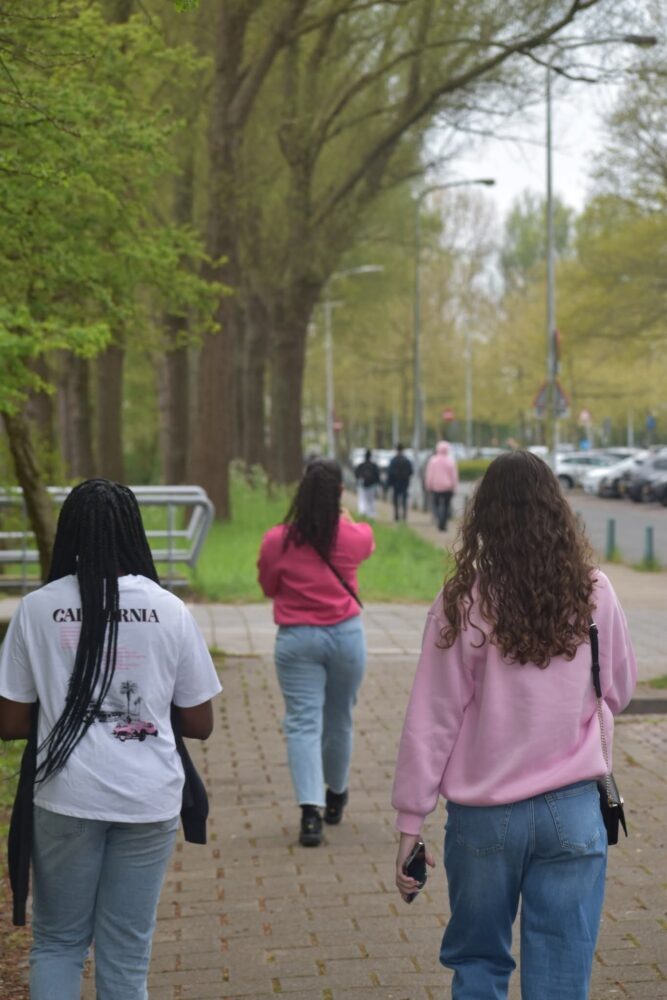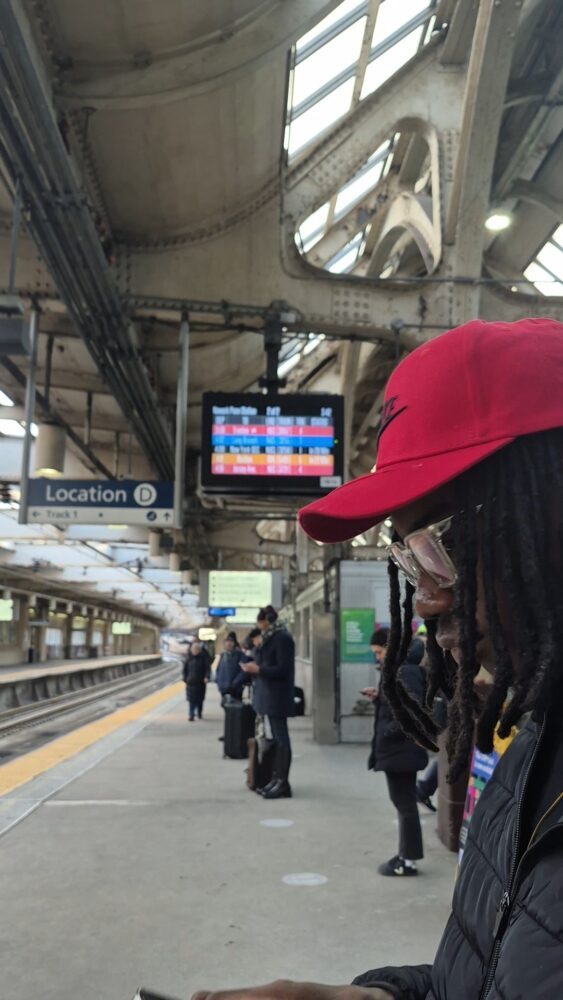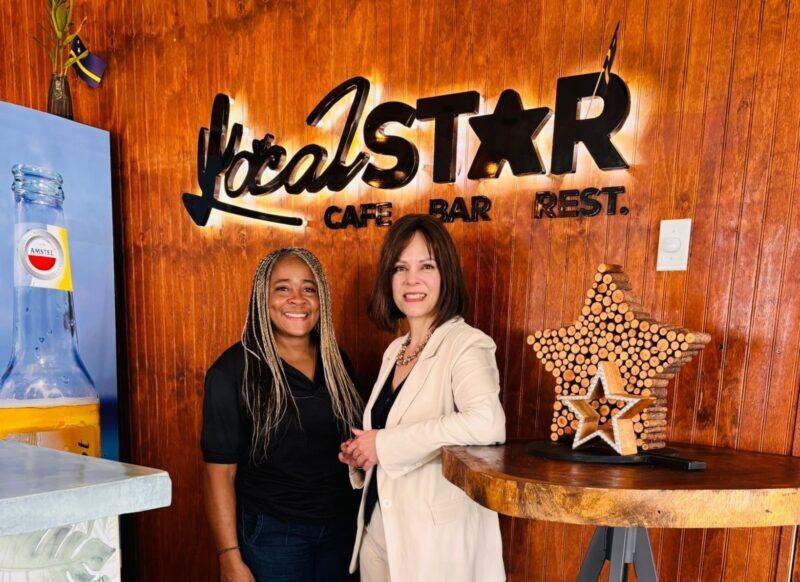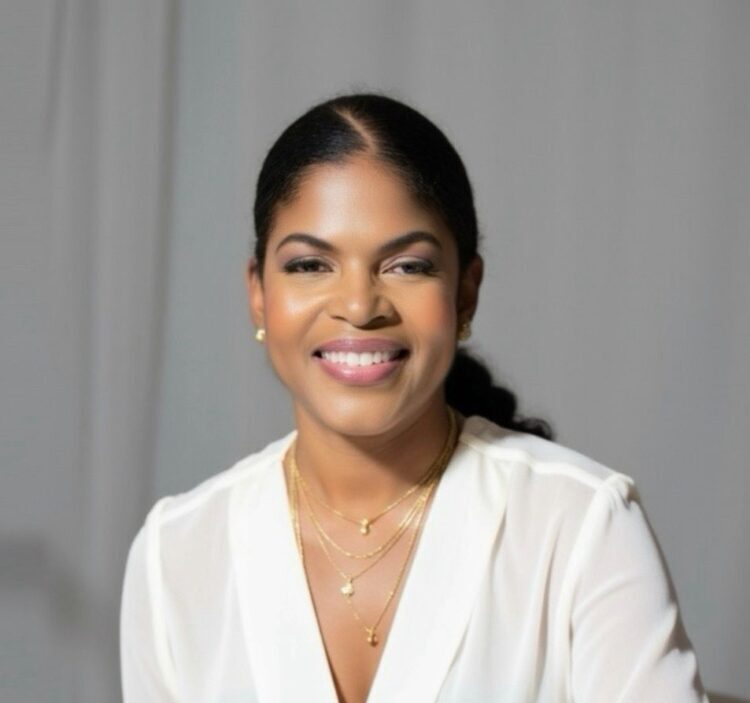BREDA – The Curaçaoan Kendrah Magloire (26) had just started her residency on the Intensive Care in Breda at the beginning of the year when the corona crisis hit. She’ll share her story with us.
“Due to the crisis I started earlier on the IC department. There were a lot of people who had corona on the department. It was a shock to see that.”
Magloire had a patient on her first day who most likely had corona. “He had a lot of underlying issues and told me: if I have corona, it will be the end of me. He asked me if I could call his wife. I didn’t want to, but I called her. He passed away two weeks later.”
Kendrah Magliore during her work on the IC department
The young physician has regular shifts on the IC department where patients remain comatose for weeks on end. “There are a lot of people on ventilators. People get intubated quickly. We don’t see a lot of symptoms in the beginning but when we measure the oxygen saturation it doesn’t look well”, says Magloire.
Bidding adieu
Putting a patient on a ventilator happens by inducing a coma. “Before that happens you have to call the family. There’s only time for one call. Patients can say a sort of farewell to their family members. Because you don’t know how long they’ll remain in a coma or if they will survive.” Some patients are in such a bad state that calling the family is not an option. “That can be very disturbing.”
Magloire says that she and other physicians have to ask themselves some tough questions. “Often times patients are on vents for three weeks. And some of them are not showing signs of improvement. You have to ask yourself if keeping them on the vent is the right decision. When people emerge from a coma they’re usually weak and complications can occur.”
Contact with Curaçao
The young physician is in constant contact with her parents on Curaçao. Her island is in lockdown and people are only allowed outside twice a week to do groceries based on the license plates.
Her mother is worried about her job on the IC department. “Before this I worked on the pulmonary department in Leiden. I had an interview in Breda in January, the corona crisis wasn’t as bad back then. My mom asked me if I should make the switch but they need me, especially now. I can’t say no to that.”
I’m worried about what will happen on Curaçao when the measures are relaxed
– Kendrah Magliore
She’s not too worried about her parents. “They are sticking to the rules. My dad works for the government and could already work from home. My mom works in the hospital’s administrative department in Curaçao. She was a bit worried about going to work. I did worry about my little brother, he’s studying in the US. Luckily he just returned to Curaçao. That’s when I could finally relax.”
Curaçao is home
If it were up to her Magloire would be working in her country of birth. “But the situation there isn’t as bad as the one here.” There have been sixteen confirmed cases on Curaçao thus far and one fatality.
Magloire believes that Curaçao has taken the right measures up till now. “I am worried about what will happen when the measures are relaxed. The hospital on the island has a larger capacity now but is that enough? That gives me sleepless nights. I’m honored to work and get opportunities in the Netherlands but Curaçao remains my home.”
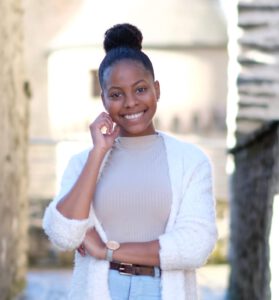 Kendrah About Kendrah MaglioreKendrah was born in Curaçao and left the island in 2011 to study in the Netherlands. She received her bachelor’s degree and then her master’s degree in 2018 in Leiden and worked as an intern on the pulmonary department at the Leiden University Medical Center. She’s been a resident on the Intensive Care department of the Amphia Ziekenhuis in Breda since April. Kendrah was the treasurer for the Vereniging van Antilliaanse Medici last year. She is still an active member of the association having a seat in the commission which is responsible for promoting residency spots for medical students on the islands |
| This week Caribbean Network will put Caribbean healthcare heroes who are working during the corona crisis in the limelight. |





